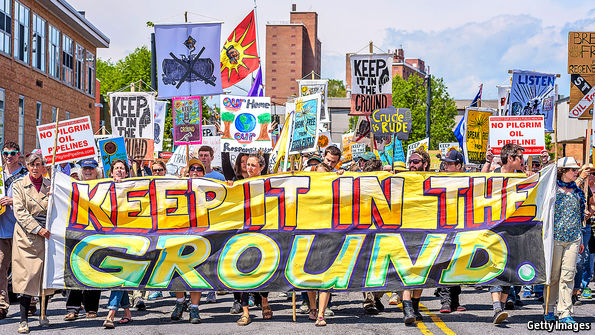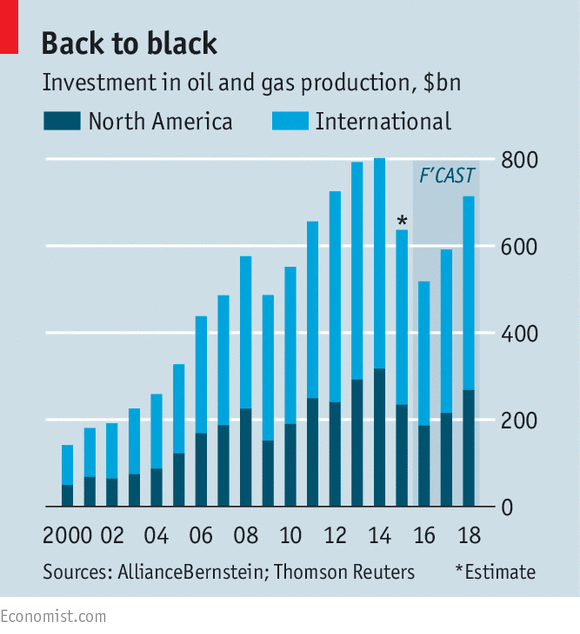闻

新闻中心
NEWS
Climate-conscious shareholders are putting Big Oil on the spot
来源:http://www.economist.com/news/business/21699141-climate-conscious-shareholders-are-putting-big-oil-spot-greens-pinstriped-suits
|
作者:The Economist
|
发布时间: 2016-05-21
|
4126 次浏览
|
分享到:

OIL firms find it hard to determine who their environmentalist adversaries are these days. They used to be easy to spot, with beards and dungarees. Now they spout forth corrupted Shakespeare to disrupt concert performances, or wear nuns’ habits at annual general meetings (AGMs). Increasingly others sport pinstripes, representing trillions of dollars of pension and other money.
As four of the five largest private oil companies prepare to meet shareholders next week, it is the green brigade in ties and suits that most worries them. At AGMs on May 25th CalPERS, the California state pension fund, with $294 billion of assets under management, plans to pressure ExxonMobil and Chevron, America’s two biggest oil companies. It wants the energy firms to outline risks to their business plans thanks to more-stringent-than-expected climate-change policies agreed in Paris in December. At ExxonMobil they will be joined by Norway’s Norges Bank Investment Management, the world’s largest sovereign-wealth fund, the New York City Pension Fund, global asset managers such as HSBC and BMO, which have about $650 billion of funds, and an ecumenical array of endowment-rich church groups.
Even Pope Francis will play a cameo role. The Sisters of St Dominic of Caldwell, New Jersey will invoke his encyclical about climate change in their proposal to commit ExxonMobil to support the Paris goal of limiting global warming to less than 2°C above pre-industrial levels.
ExxonMobil, the world’s largest private oil company, gives these resolutions short shrift. It argues that more energy is necessary to alleviate global poverty, and that technology—coupled with a carbon tax—will mitigate the environmental risks. It may hope that a recent rebound in oil prices to around $50 a barrel will pacify shareholders. But their frustrations have been fanned by a decade of wasteful spending in the oil and gas industry (see chart). Some believe that more restrained capital allocation would boost returns, as well as helping the planet.

Most, if not all, of the investors’ resolutions will fail, says Heidi Welsh of the Sustainable Investments Institute, an American research firm. Such is the relatively docile nature of owner activism in America. But she says pressure from investors, ranging from those with concerns about the long-term economic impact of climate change to those with more moral preoccupations, is “coming to a head”.




